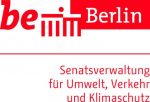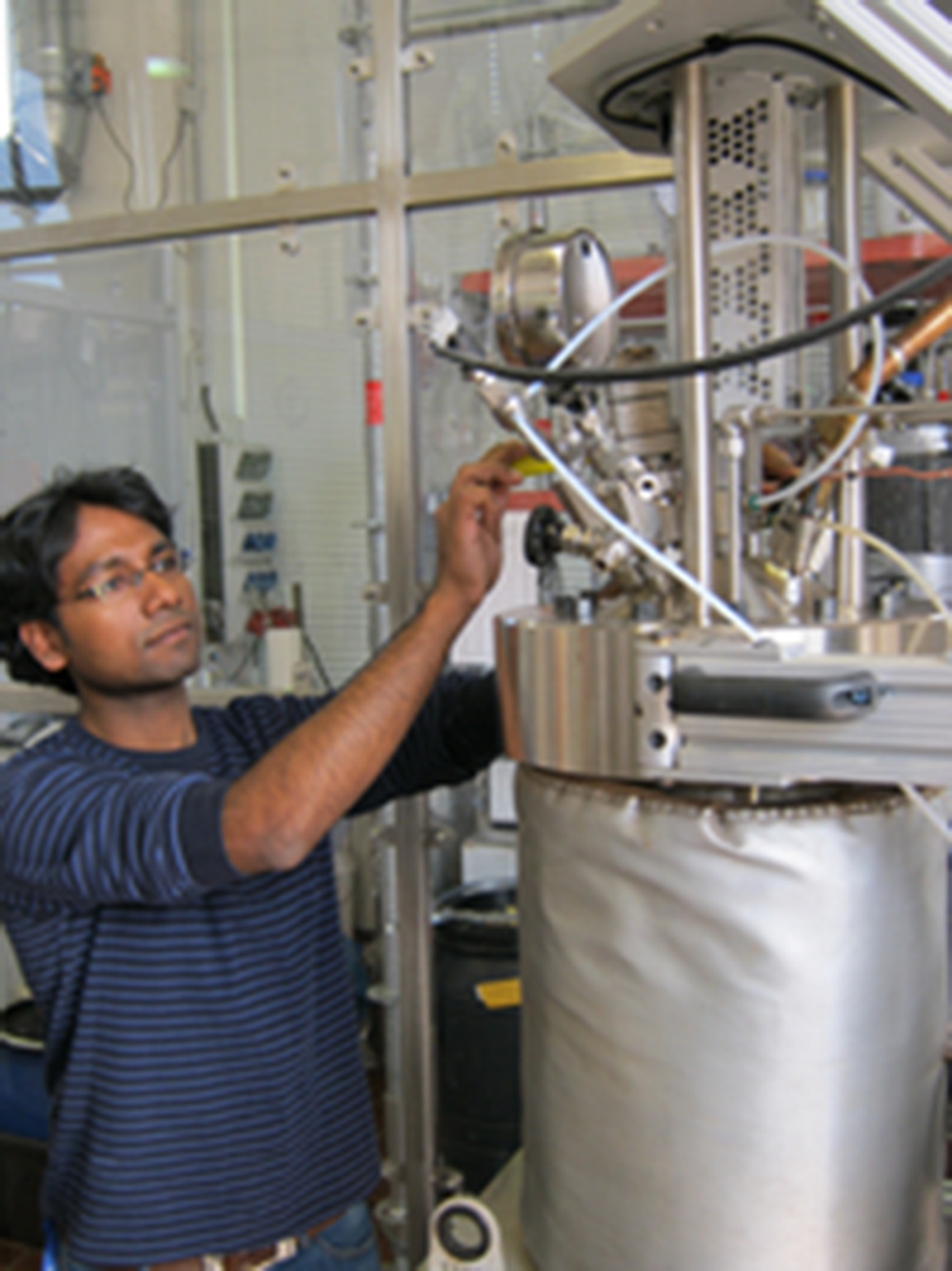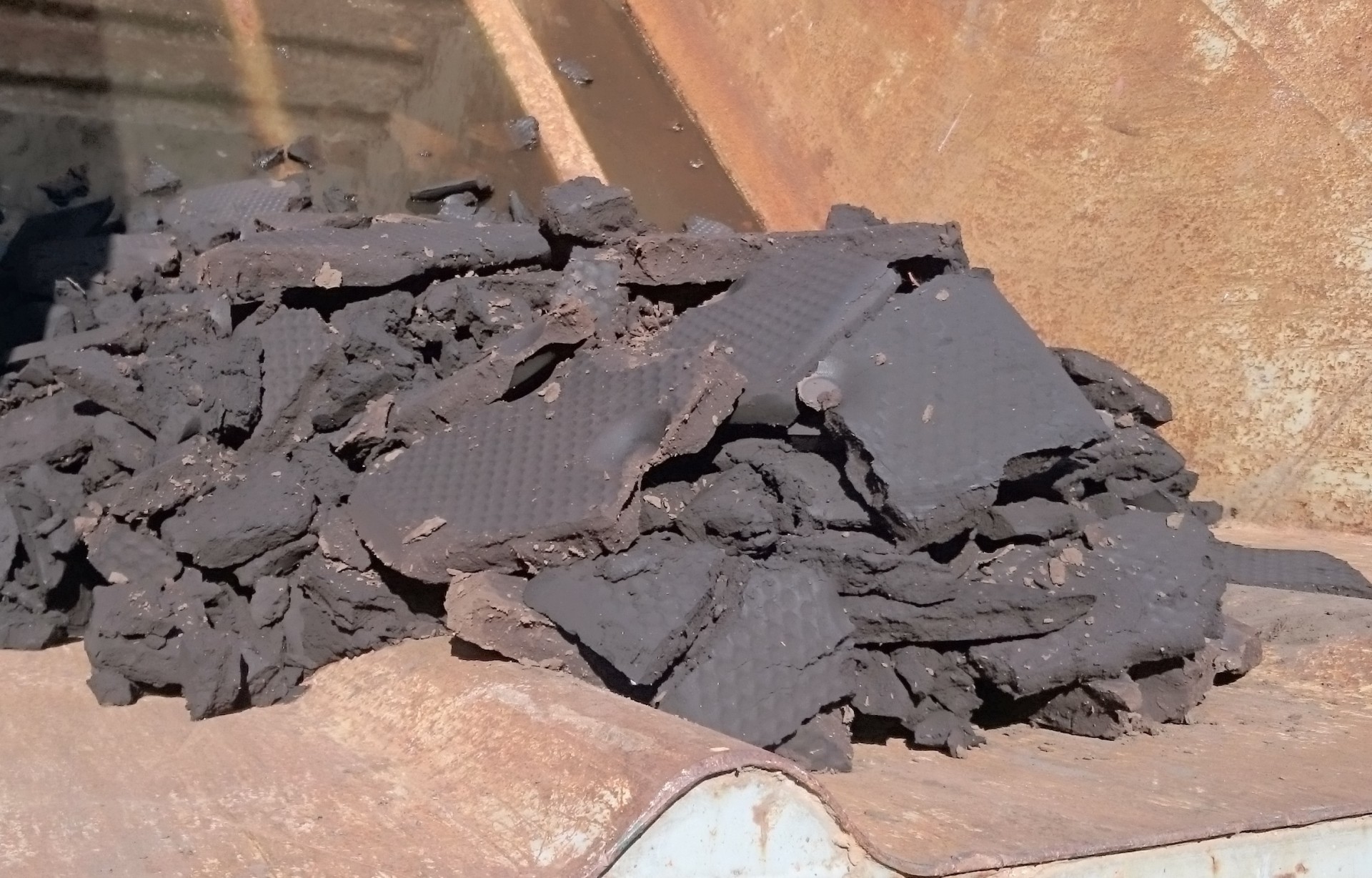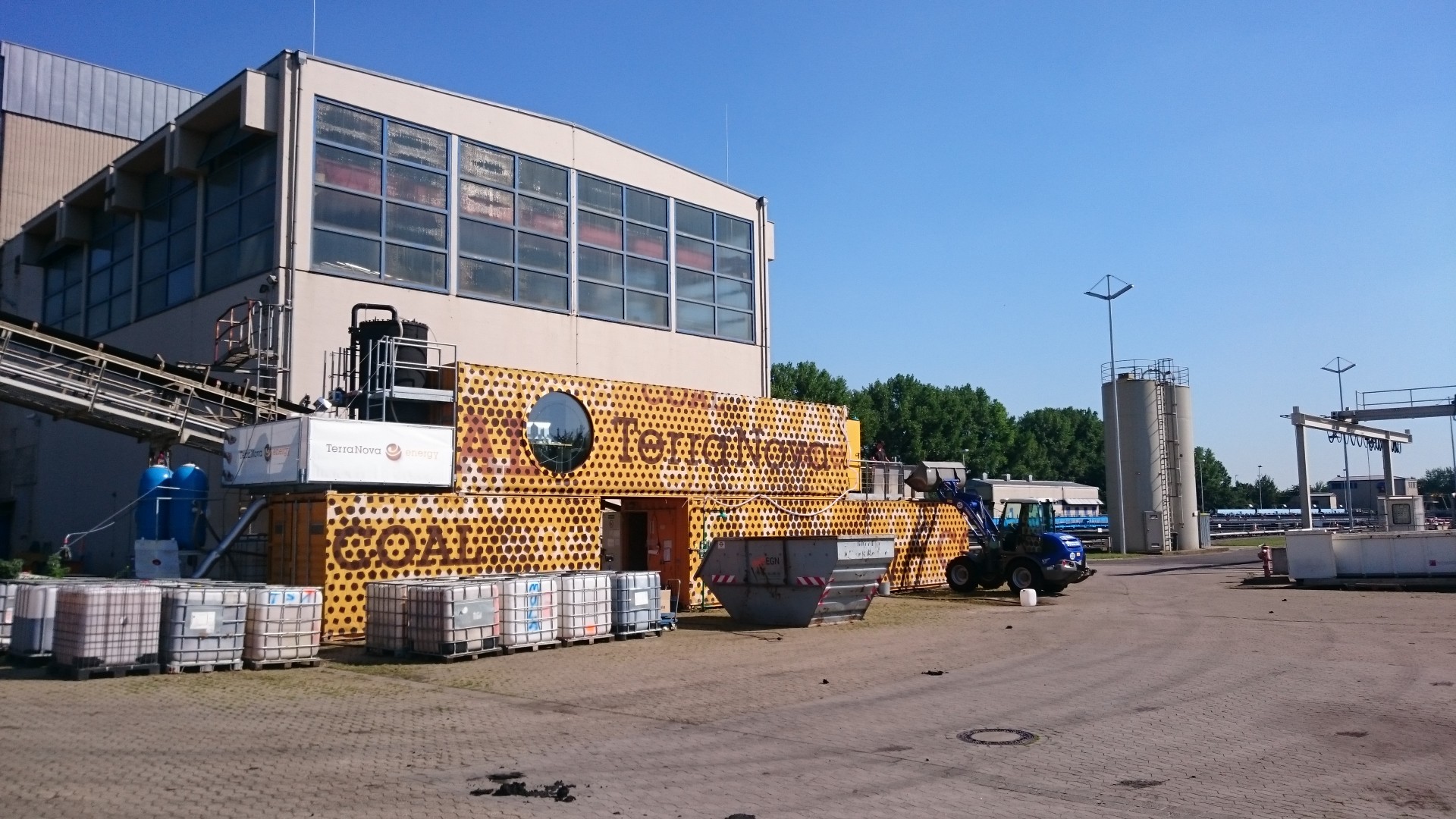Potentials and Barriers of Hydrothermal Carbonisation in Berlin
In Berlin, 250.000 t of dewatered sewage sludge are generated every year. For an energy efficient incineration of this sludge, its water content should be minimized. The project HTC-Berlin will investigate if the new process of hydrothermal carbonisation (HTC) is suitable to improve the energy and greenhouse gas balance of sewage sludge disposal in Berlin.
In the HTC process, dewatered sewage sludge is treated at high temperature (160 up to 220°C) and can subsequently be dewatered again to very low water content (> 30%), resulting in an energy-efficient disposal in incineration. At the same time, HTC produces a filtrate highly loaded with organics and nutrients that can be returned to the digestor for biogas production, but that also contains refractory substances which will have an impact on the effluent quality of the wastewater treatment plant. In this project, KWB will test different sewage sludges from Berlin in HTC lab trials in cooperation with Berliner Wasserbetriebe and transfer the results into a holistic energy and greenhouse gas balance to estimate potentials and barriers for HTC in Berlin. The project is financed under Berlin`s Environmental Relief Programme (UEPII) of the Berlin city (Administration for urban development and environment) and co-financed by the European Union (European Regional Development Fund – ERDF).
Block error: "Call to a member function resize() on null" in block type: "references"




- Integrating concepts for energy and resource recovery from municipal wastewater with LCA.
- Weiterentwicklung des Klima- und Ressourceneffizienzpotentials durch HTC-Behandlung ausgewählter Berliner Klärschlämme - HTC-Berlin (11443UEPII/2)
- Energie- und Treibhausgasbilanz ausgewählter Szenarien zur Klärschlammentsorgung mit Hydrothermaler Karbonisierung in Berlin




